From Ignored to Indispensable: The Proven, Step-by-Step CX Insights Mastery Blueprint in < 6 Days! Get free access>

Discover 15 eye-opening statistics that reveal how customer experience (CX) is the growth engine for eCommerce. Learn the impact of personalization, AI, omnichannel strategies, and more on revenue and customer satisfaction.

In today’s fiercely competitive business landscape, customer experience (CX) is the linchpin for growth. Businesses can no longer rely solely on superior products; they must deliver seamless, personalized, and engaging experiences at every customer touchpoint.
A Forrester Total Economic Impact (TEI) study revealed that a superior CX can result in a significant $1.8 million boost in income over three years, along with substantial cost savings and increased efficiency. The growth of the global eCommerce market underscores the need for superior CX to stay competitive.
The eCommerce statistics that follow highlight the power of AI-driven Voice of the Customer (VoC) analysis to unlock this growth engine, enabling businesses to:
The growth of global eCommerce sales on business strategies underscore the importance of leveraging AI-driven VoC analysis to stay competitive.
The following statistics and the Forrester TEI study highlight the undeniable connection between CX and business success. Embracing AI-driven VoC analysis is not just a trend; it’s a strategic imperative for businesses seeking to thrive in the customer-centric era.
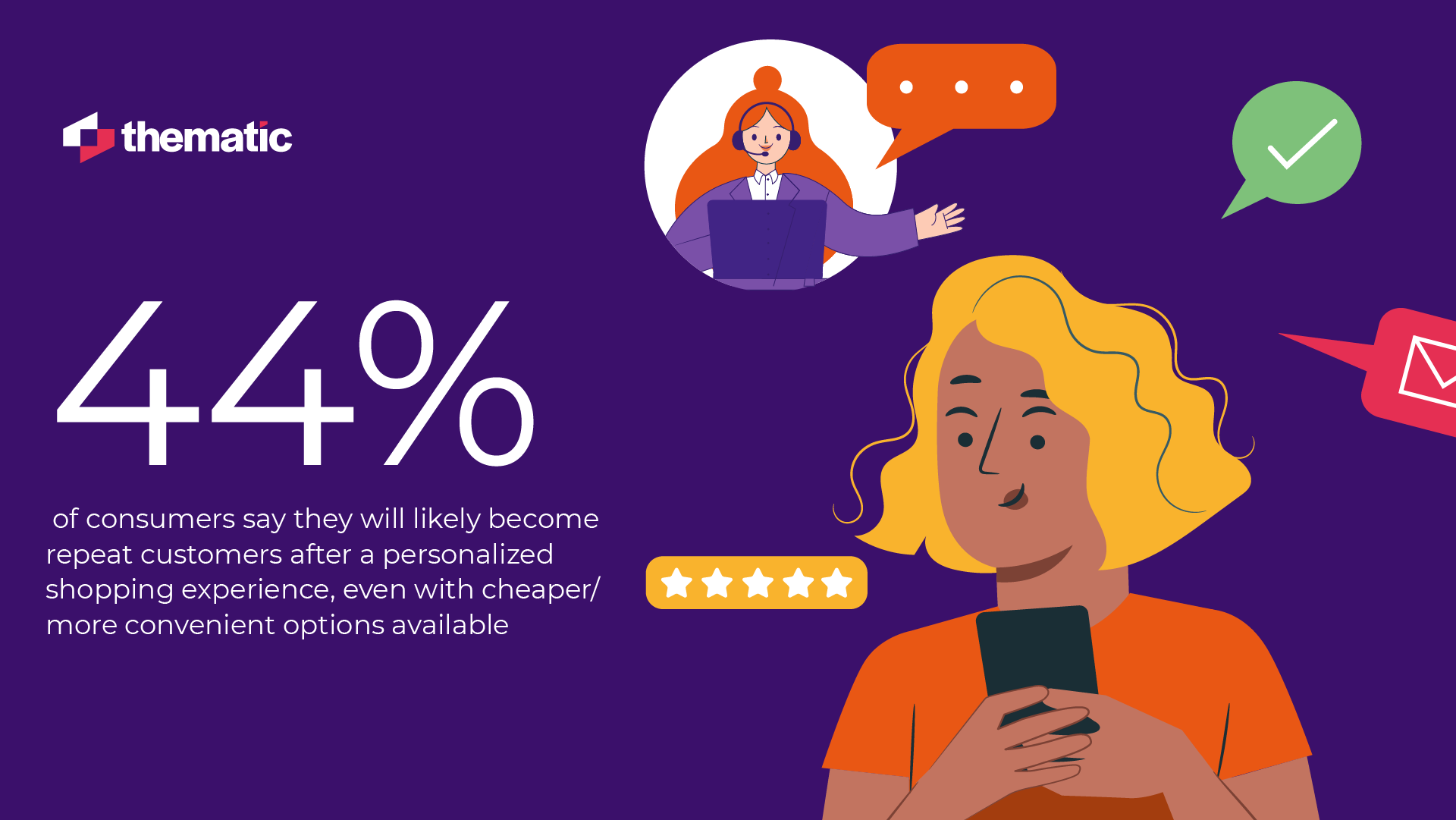
The power of personalization in online shopping cannot be overstated. As more consumers prefer to shop online, nearly half are willing to forgo cost savings and convenience in favor of a tailored shopping experience. In today’s ecommerce landscape, the significance of mobile shopping is also paramount, with a growing number of consumers using their mobile devices for purchases. Personalization fosters a sense of connection and understanding, turning casual shoppers into loyal brand advocates.
There’s a stark disconnect between what businesses believe they’re offering and what customers actually perceive, especially on eCommerce platforms. Online retailers play a crucial role in shaping consumer perceptions through their personalization efforts. A significant portion of personalization efforts fall flat, failing to resonate with consumers. This misalignment highlights the need for a more nuanced and data-driven approach to personalization.
Customers are not just satisfied with current levels of personalization; they expect it to evolve alongside technology, especially with the rise of mobile commerce. The significant impact of online sales also drives the need for advanced personalization strategies. There is a growing demand for increasingly sophisticated and tailored experiences as technology advances. Businesses that fail to adapt risk falling behind and losing customers to more innovative competitors.
In an era of data breaches and privacy concerns, transparency in social media platforms is critical for consumer trust. The rise of online purchases has further highlighted the need for clear and concise communication regarding data collection and usage. This statistic underscores the importance of clear and concise communication regarding data collection and usage. Customers are more likely to trust companies that are upfront about how their data is being used, fostering a sense of transparency and control.
45% of marketers are turning to AI to enhance their omnichannel messaging strategies and boost eCommerce sales. The rise of mobile eCommerce is also significant in these strategies, as it plays a crucial role in reaching customers on their preferred devices. The goal? To break down silos and create a unified brand experience across every customer touchpoint. Omnichannel strategies, supported by AI-driven VoC analysis, are essential for identifying inconsistencies and gaps in the customer journey, leading to improved retention and loyalty.
Retailers braced themselves for a wave of returns, with 13.3% of holiday retail eCommerce sales expected to be returned, a significant portion of total retail sales. Online stores play a crucial role in managing these returns efficiently.
However, savvy businesses view returns as more than just a logistical challenge. By leveraging AI-powered VoC analysis, companies can glean valuable insights from return data, identifying product flaws, optimizing purchase journeys, and ultimately transforming returns into opportunities for growth.
Nearly half of all customers (47%) find returning items to a physical store more convenient than shipping them back. This preference for in-person returns presents a unique opportunity for businesses to create a positive customer experience. By offering seamless in-store returns and leveraging AI-driven VoC analysis to understand customer preferences, retailers can turn a potential pain point into a brand-building moment for online stores.
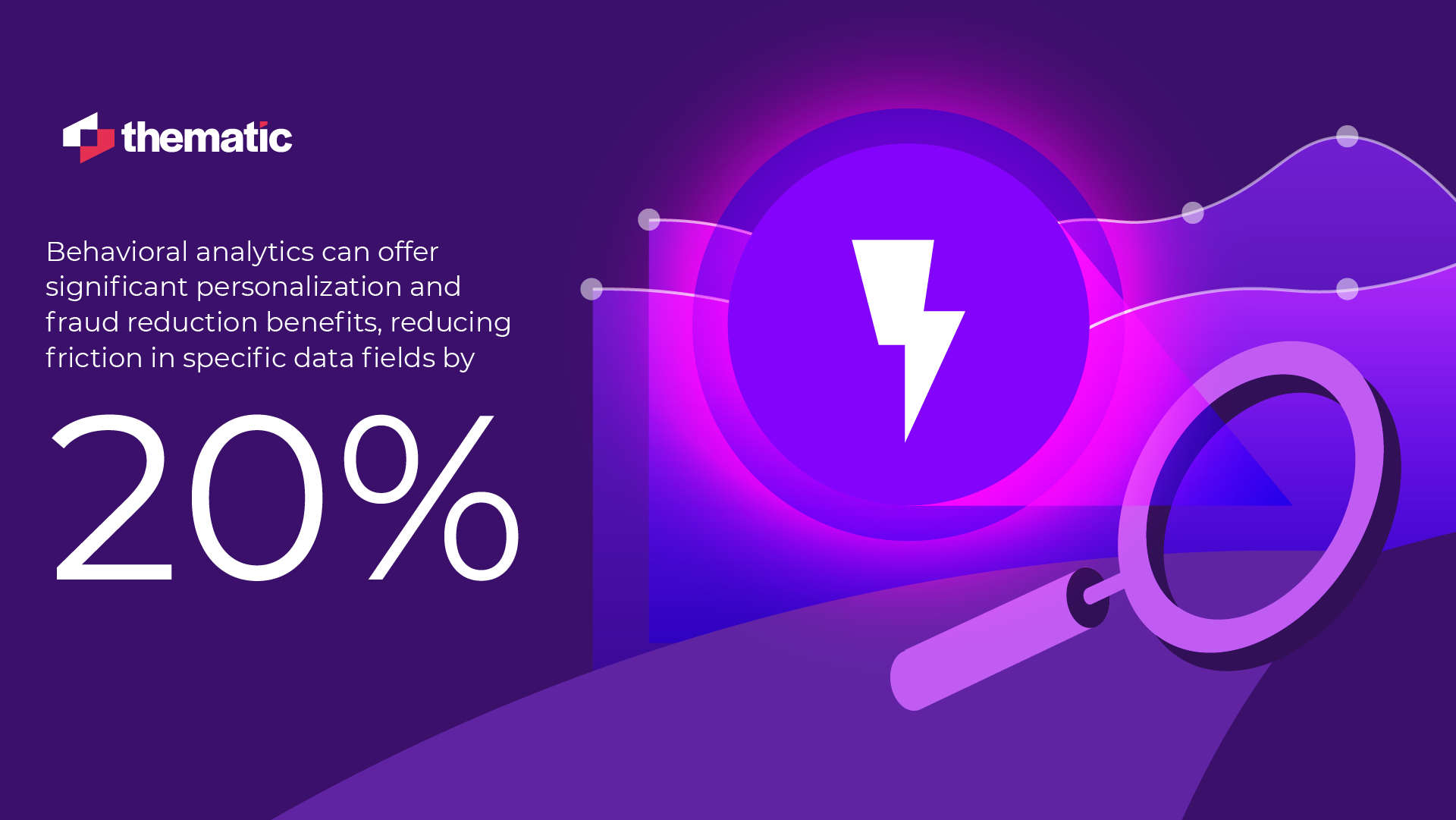
Behavioral analytics isn't just about tracking past actions; it's about predicting future behavior. By leveraging AI to analyze real-time customer interactions, businesses can anticipate customer needs, personalize offers, and even proactively prevent fraud. This data-driven approach can significantly reduce friction in the customer journey, resulting in increased conversions and a smoother overall experience.
Automation and self-service options have become commonplace. However, 59% of global consumers feel that companies have lost the human element of customer experience. This yearning for authentic, empathetic interactions highlights a crucial gap in many CX strategies.
In an era of instant communication and online reviews, negative customer experiences can quickly escalate into a PR crisis. The fact that customers are 2.6 times more likely to share their negative experiences than positive ones highlights the importance of proactive customer service. Addressing issues before they escalate can not only prevent negative word-of-mouth but also transform dissatisfied customers into loyal advocates.
Bad news travels fast, especially in our mobile-centric world. Customers are 2.6 times more likely to share their negative experiences than positive ones, amplifying the impact of a single misstep. This negative word-of-mouth can quickly tarnish your brand's reputation, deter potential customers, and ultimately lead to lost revenue.
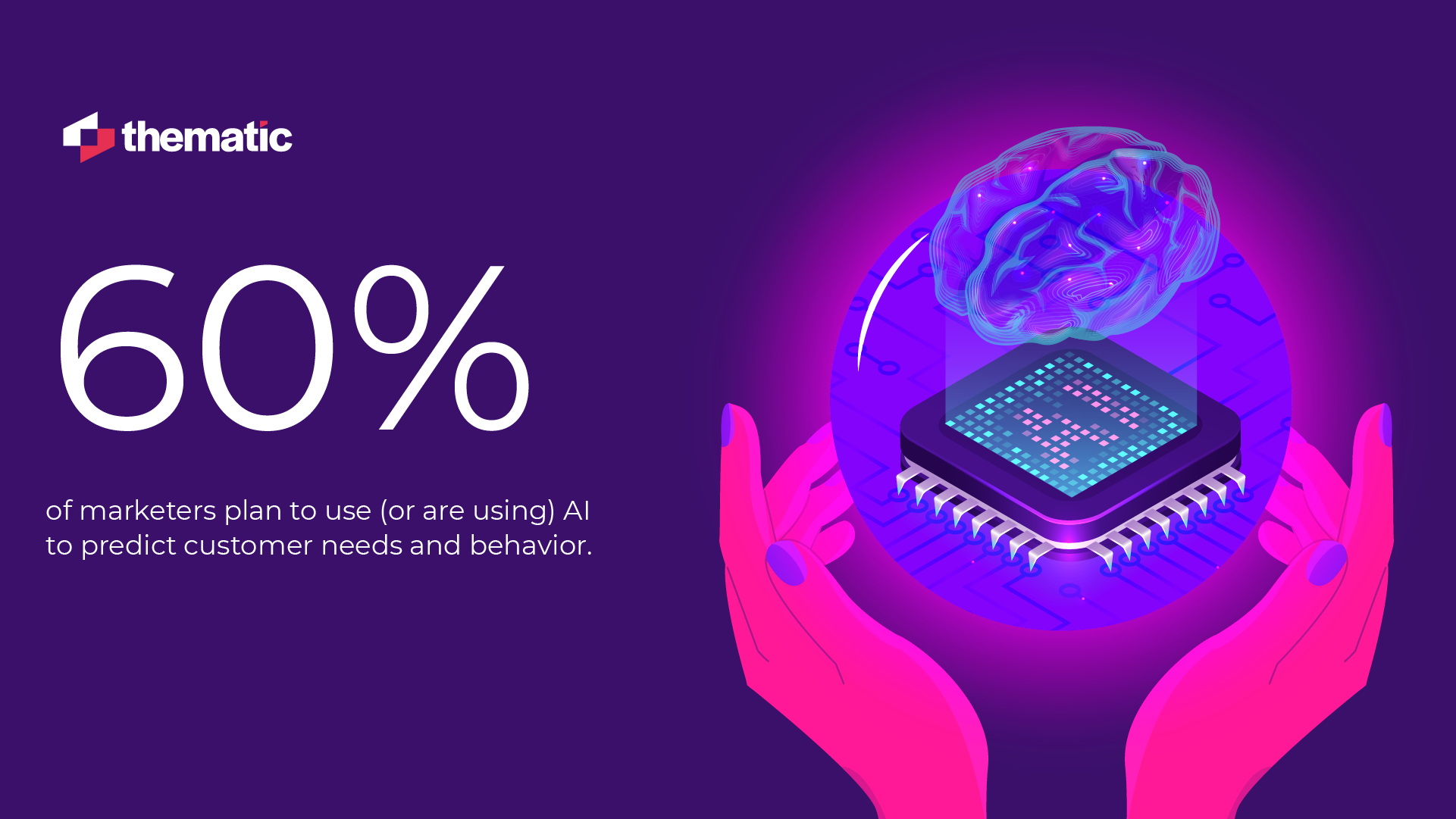
Staying ahead of the curve is crucial in the fast-paced world of marketing. 60% of marketers are already harnessing the power of AI to predict customer needs and behavior, recognizing its potential to revolutionize how businesses engage with their audiences. By leveraging AI-driven insights, marketers can anticipate customer preferences, tailor messaging, and deliver personalized experiences that drive engagement and conversion.
Marketers are increasingly recognizing the potential of AI to unlock hyper-personalization, with 40% planning to leverage this technology to create highly tailored experiences for their customers. This shift towards hyper-personalization signifies a growing understanding that one-size-fits-all marketing is no longer effective in today's competitive landscape.
The modern customer values autonomy and efficiency. A significant 69% of consumers prefer to resolve customer service issues independently, showcasing a preference for self-service options like knowledge bases, FAQs, and chatbots. This trend presents an opportunity for businesses to empower their customers, reduce support costs, and improve overall satisfaction.
Despite the benefits of personalization, a significant 51% of customers express skepticism about how companies use their data. This lack of trust can hinder businesses' ability to leverage data for personalized experiences and targeted marketing. Building trust through transparent data practices is essential for establishing strong customer relationships and maximizing the value of customer data.
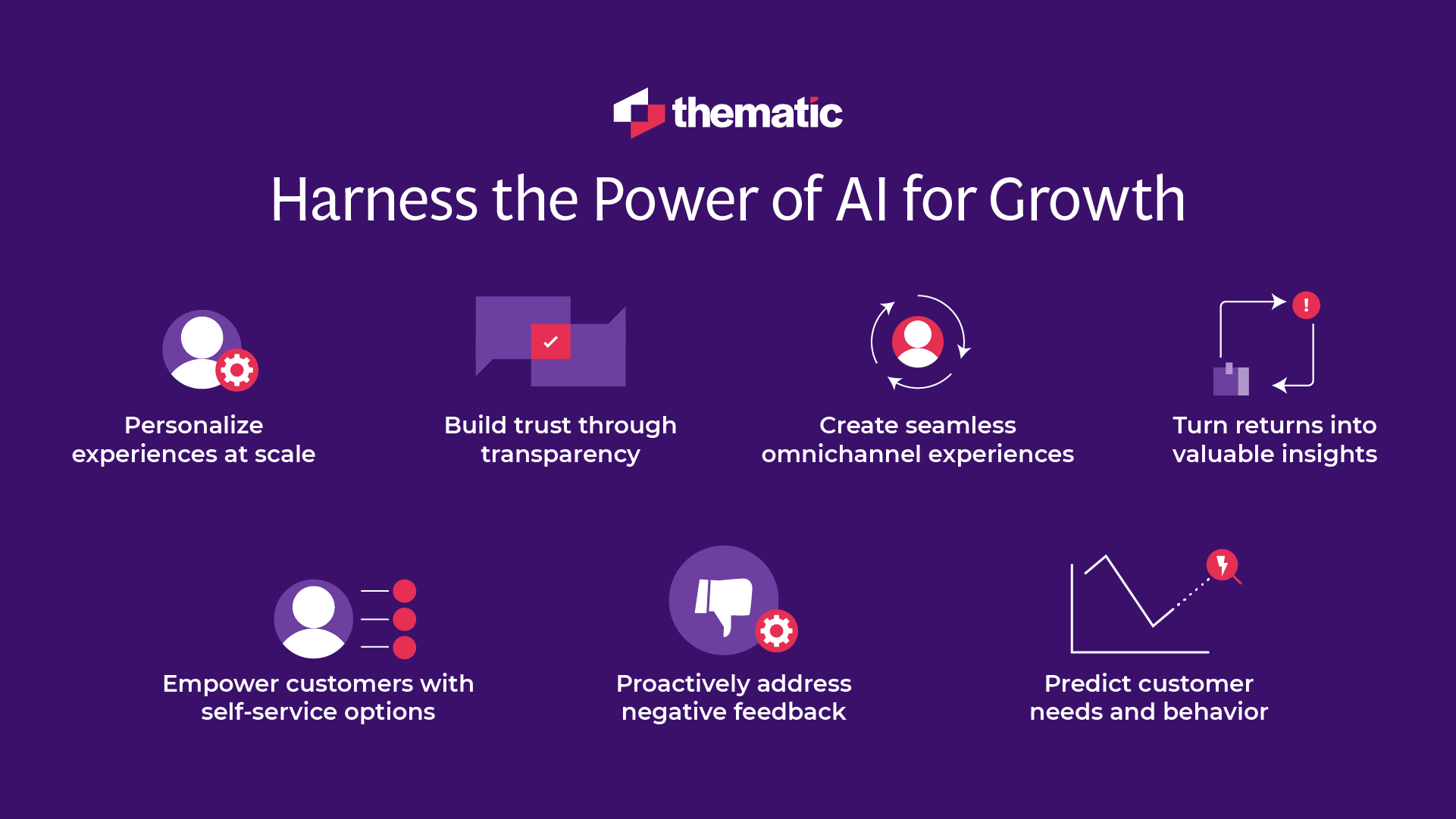
Ignoring the voice of the customer is a risk that no company can afford to take. By embracing AI-driven VoC thematic analysis, businesses can unlock a deeper understanding of your customers, empowering you to:
Ready to unlock the power of your customer's voice and transform your CX strategy? Discover how Thematic, a leading AI-powered VoC platform, can revolutionize your business. Get a free guided demo to learn more and start your journey towards a truly customer-centric future.
Join the newsletter to receive the latest updates in your inbox.
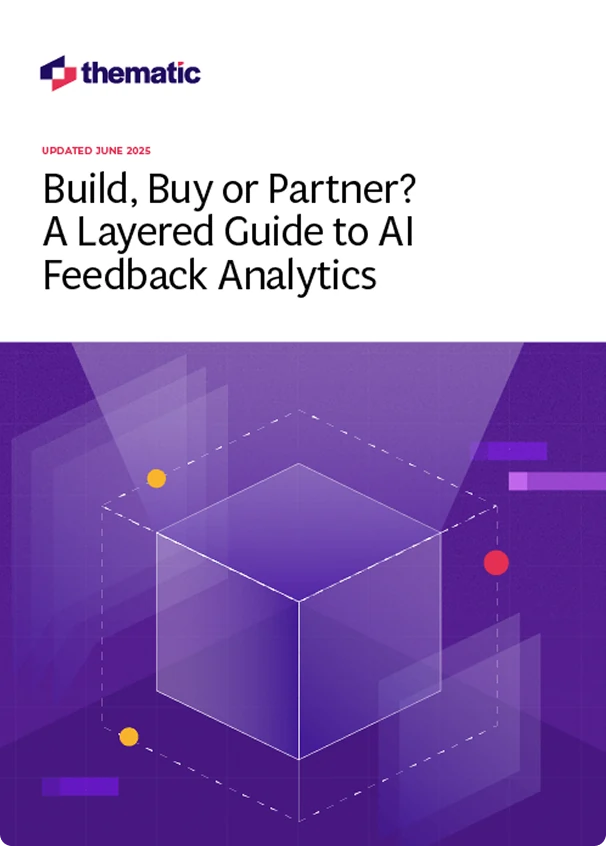
Transforming customer feedback with AI holds immense potential, but many organizations stumble into unexpected challenges.